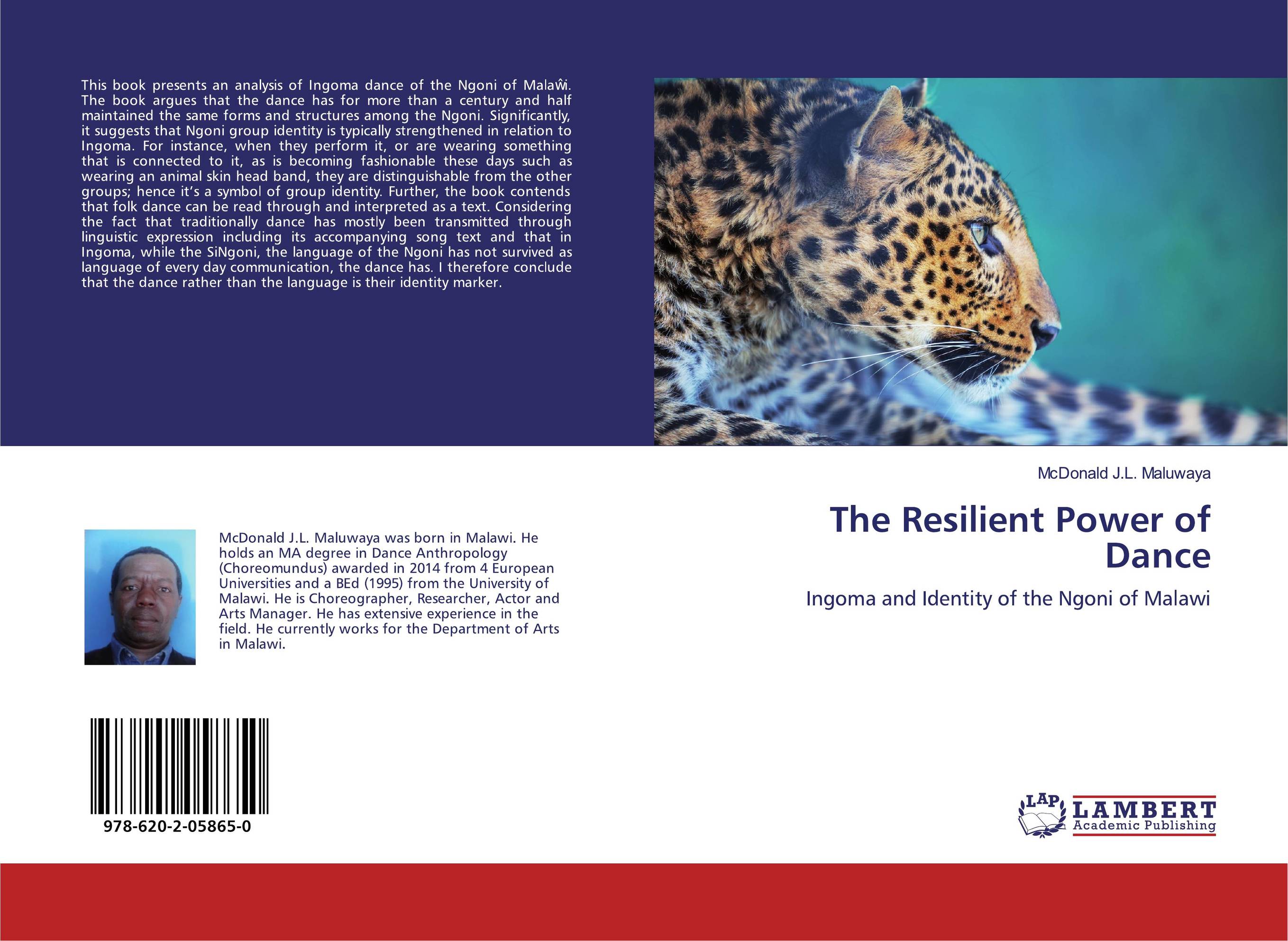| Поиск по каталогу |
|
(строгое соответствие)
|
- Профессиональная
- Научно-популярная
- Художественная
- Публицистика
- Детская
- Искусство
- Хобби, семья, дом
- Спорт
- Путеводители
- Блокноты, тетради, открытки
The Resilient Power of Dance. Ingoma and Identity of the Ngoni of Malawi

В наличии
| Местонахождение: Алматы | Состояние экземпляра: новый |

Бумажная
версия
версия
Автор: McDonald J.L. Maluwaya
ISBN: 9786202058650
Год издания: 2018
Формат книги: 60×90/16 (145×215 мм)
Количество страниц: 80
Издательство: LAP LAMBERT Academic Publishing
Цена: 23919 тг
Положить в корзину
| Способы доставки в город Алматы * комплектация (срок до отгрузки) не более 2 рабочих дней |
| Самовывоз из города Алматы (пункты самовывоза партнёра CDEK) |
| Курьерская доставка CDEK из города Москва |
| Доставка Почтой России из города Москва |
Аннотация: This book presents an analysis of Ingoma dance of the Ngoni of Mala?i. The book argues that the dance has for more than a century and half maintained the same forms and structures among the Ngoni. Significantly, it suggests that Ngoni group identity is typically strengthened in relation to Ingoma. For instance, when they perform it, or are wearing something that is connected to it, as is becoming fashionable these days such as wearing an animal skin head band, they are distinguishable from the other groups; hence it’s a symbol of group identity. Further, the book contends that folk dance can be read through and interpreted as a text. Considering the fact that traditionally dance has mostly been transmitted through linguistic expression including its accompanying song text and that in Ingoma, while the SiNgoni, the language of the Ngoni has not survived as language of every day communication, the dance has. I therefore conclude that the dance rather than the language is their identity marker.
Ключевые слова: collective memory, Cultural History, Transmission, unity, group identity/ethnicity, cultural preservation, cultural text



